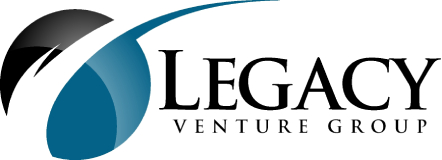
When you sell construction business, be prepared for due diligence

When selling a construction company—whether it’s an HVAC, plumbing, roofing, or electrical contracting company—being prepared for the due diligence process is key to ensuring a successful and smooth transaction. Due diligence is when the buyer examines the business from top to bottom to ensure they are getting what they’re paying for and that there are no hidden risks. Sellers should be well-prepared, organized, and proactive to make this process as seamless as possible.
At Legacy Venture Group and Tampa business brokers, we have extensive experience helping construction company owners, from HVAC businesses to roofing contractors, navigate the complexities of selling their business. The best-case scenario is when you, the seller, have already organized all the necessary information and documentation the buyer might need. While this can be time-consuming, being thorough upfront can save you from delays and frustration down the road.
What to Expect During Due Diligence
Buyers will ask a lot of questions about your construction business, covering everything from financial data to employee details. The key is to work with your intermediary—your business broker—to stand between you and the buyer. Legacy Venture Group’s business brokerage team understands how to manage buyer inquiries and ensure that all questions remain professional and within the proper boundaries. Some buyers may seem pushy, but it’s essential to stay calm and organized throughout the process.
For example, if you’re selling an HVAC company, the buyer may be particularly interested in reviewing your contracts with suppliers for equipment, as well as the maintenance agreements you have in place with customers. In the case of a plumbing or electrical contracting company, they might be more focused on employee certifications and safety protocols. Roofing companies will need to ensure all warranties, safety records, and insurance policies are available for review.
One of the critical boundaries to set during this process is confidentiality. No buyer should know the name or identity of your construction company until they’ve signed a non-disclosure agreement (NDA). Once this NDA is in place, they will receive a large amount of information about your business. However, certain sensitive information—such as detailed financials, customer contracts, or proprietary processes—will only be shared once you’ve agreed to a Letter of Intent (LOI) or signed an Asset Purchase Agreement (APA).
In some cases, such as for roofing or HVAC companies with proprietary installation methods or supplier relationships, some details may be withheld until after the sale closes. These are often referred to as the “recipe to the secret sauce,” something that might be shared only when the buyer takes full control of the company.
Being organized or well prepared to make the process a lot easier less stressful for both you and the buy of your business and give you the greatest opportunity to sell your business for the best price.`
Key Elements of a Due Diligence List for Construction Companies
Here are some key categories of information that buyers will likely request during the due diligence process:
- Corporate Structure
Buyers will want to know how your company is structured. This includes legal documents such as articles of incorporation or operating agreements. If you’re running an HVAC or plumbing company, your licensing and compliance with local regulations will also be closely reviewed. - Financial Data
Detailed financial records are essential. Buyers will want to see tax returns, profit and loss statements, balance sheets, and accounts receivable (A/R) and accounts payable (A/P) ledgers. For construction companies, it’s especially important to ensure that the financial records accurately reflect the costs of materials, labor, and any ongoing contracts or projects. - Employee Data
Buyers will likely want to know about your key employees, especially for trades like electrical contracting or plumbing, where certifications and licenses are required. Having organized employee records and ensuring that any necessary safety training or certifications are up to date will help build confidence in your business’s operational strength. - Vendor/Supplier Data
If you’re an HVAC company, your relationships with suppliers for equipment and parts will be a point of interest. The same goes for plumbing companies, where supplier agreements for materials like pipes and fixtures are critical. Buyers will want to know who your key suppliers are and whether those relationships will continue post-sale. - Customer Data
Buyers will want to understand your customer base, including any long-term contracts or repeat business. For example, if you own a roofing company and have ongoing contracts with real estate developers or property managers, buyers will want to know the terms of those agreements. - Contract Data
Any construction contracts, whether they are for large commercial projects or smaller residential jobs, will need to be reviewed. Buyers will want to assess whether the terms of these contracts are favorable and whether there are any risks or liabilities associated with them. - Property Data
If your construction company owns any real estate or has significant assets such as trucks, equipment, or tools, the buyer will need a clear understanding of their value. Whether it’s a fleet of service vehicles for an HVAC company or specialized tools for a plumbing business, these assets will play a significant role in the valuation of the company. - Legal Issues
Any ongoing litigation or past legal disputes will need to be disclosed. For construction companies, this might include safety violations, compliance issues, or disputes over completed work. Transparency in these matters is crucial. - Financing and Leasing
Buyers will want to understand any outstanding debts or leasing arrangements. This includes loans on equipment, leasing of office or warehouse space, and any long-term financing commitments.
Preparation and Patience
The due diligence process can seem overwhelming, but being organized and prepared can help. Working closely with Legacy Venture Group and Tampa business brokers ensures that you have the support you need to navigate this phase. Your intermediary will act as a buffer between you and the buyer, ensuring that the process remains professional and that any sensitive information is protected.
By preparing for due diligence and working with experienced intermediaries, you can position your construction company for a successful sale, whether you’re in HVAC, plumbing, electrical contracting, or roofing. Proper preparation and patience will lead to a smoother transaction and a better outcome for all parties involved.
